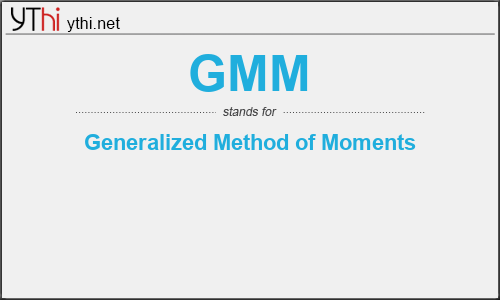What does GMM mean? What is the full form of GMM?
The Full Form of GMM is Generalized Method of Moments.
In econometrics and statistics, the generalized method of moments (GMM) is a generic method for estimating parameters in statistical models. Usually it is applied in the context of semiparametric models, where the parameter of interest is finite-dimensional, whereas the full shape of the data’s distribution function may not be known, and therefore maximum likelihood estimation is not applicable.
The method requires that a certain number of moment conditions be specified for the model. These moment conditions are functions of the model parameters and the data, such that their expectation is zero at the parameters’ true values. The GMM method then minimizes a certain norm of the sample averages of the moment conditions, and can therefore be thought of as a special case of minimum-distance estimation.The GMM estimators are known to be consistent, asymptotically normal, and efficient in the class of all estimators that do not use any extra information aside from that contained in the moment conditions. GMM were advocated by Lars Peter Hansen in 1982 as a generalization of the method of moments,introduced by Karl Pearson in 1894. However, these estimators are mathematically equivalent to those based on “orthogonality conditions” (Sargan, 1958, 1959) or “unbiased estimating equations” (Huber, 1967; Wang et al., 1997).
GMM
means
Generalized Method of Moments![]()
Translate Generalized Method of Moments to other language.


Leave a Reply
You must be logged in to post a comment.